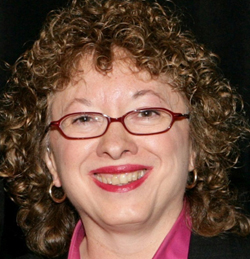Needless to say, a vaccine targeting these Group A Strep diseases would save many lives — and that’s exactly what VaxForm is working on.
Founder Garry Morefield has used the training he received at Purdue University working on his Ph.D. in pharmaceutics (industrial and physical pharmacy), as well as his years working in the R&D departments of the U.S. Army Medical Research Institute of Infectious Disease and Sanofi Pasteur to found VaxForm. GAS is the company’s first product.
Having completed animal studies on the vaccine, VaxForm is preparing for stage one clinical trials on humans, which, if all goes well, will begin in 2016.
VaxForm also provides consulting services, using Morefield’s experience developing vaccines for diseases such as anthrax, plague and seasonal flu to help clients working on vaccine formulations.
What was the inspiration behind VaxForm?
After working at the USAM in Fort Detrick, Md., for a number of years, I took a job at Sanofi Pasteur in the Poconos. Then Sanofi moved its R&D to France and my family didn’t want to go there.
I always wanted to start a company like this. I didn’t think it would be this soon, but the move by Sanofi sped up the timeline. It has always been a dream of mine to be able to work on my own and be entrepreneurial — to do both the business side and the science side. When you work for a large company you get bogged down in bureaucracy.
How did you get started?
I started VaxForm in 2010 as a consulting company, and then we started to branch out, [adding] a laboratory to do R&D. We also do laboratory contract work for some of our clients. We still do consulting for industry, government and academic institutions, and provide lab services for those who don’t have labs of their own.
At the time I started, the economy was in the midst of the downturn, which was nerve-wracking. But vaccines is a niche field; not many people do this kind of R&D. So it was a good time for this. Large companies were moving toward a model of outsourcing R&D, looking for smaller, more nimble companies to help them move products faster. It was a good marriage of timing and capability.
I started out with a computer and $5,000.
What resources did you take advantage of in starting the company?
I wrote grants and established my first lab in Rockville, Md., near one of my collaborators. There is an organization similar to Ben Franklin Technology Partners there, which made promises and then fell through. So I moved everything back up to the Lehigh Valley.
I’ve been very happy with Ben Franklin Technology Partners of Northeastern Pennsylvania for the support they’ve given us and for the facilities, including a lab in TechVentures on the Lehigh University campus since 2012.
We won a government STTR Award of $850,000 to develop the strep vaccine. We have a relationship with Lehigh University and have worked with them. And we have shared information with other companies in the area who are also Ben Franklin companies.
How has your company grown?
In the past we have hired temporary employees, since our contracts come and go, but last year I hired a Ph.D. from Louisiana State University. We bring in people as needed, fluctuating between two and four.
We have done animal studies, but we can’t do them at Ben Franklin TechVentures, so we have to contract that out. So far we have had very good results from the animal studies on the GAS vaccine. We just published an article in the journal Vaccine, and I am presenting our results at a conference in Boston this week (July 7-11).
We’re moving into a stage called clinical safety studies, to prove we are ready to start stage one clinical trials on humans, which we hope to begin at the beginning of 2016.
What has been the biggest challenge in getting VaxForm off the ground?
Raising funds to do the R&D. It’s a pretty tight fundraising market for this type of biotechnology. It’s a very long horizon for returns. The returns can be very high, but most firms that have enough money aren’t willing to go into this early stage. The tests are expensive to run, because there are things we have to do because of regulations. In the early stage, most of the money has come from grants rather than investors.
What is your relationship with U.S. Specialty Formulations?
A couple of years ago, I started talking with Kyle Flanigan about the fact that VaxForm was going to need to produce clinical trial material for people in a GMP (good manufacturing practice) facility for FDA inspection. There is also a large unmet need for sterile injectable production capacity in the U.S., especially for compounded pharmaceuticals.
I am now the COO of U.S. Specialty Formulations and in charge of manufacturing; Kyle is the CEO.
We recently completed the construction in TechVentures of a clean room capable of manufacturing small batches of drug products. We’re focusing on sterile injectables, clinical trial materials and compounded materials.
What is the big differentiator for VaxForm?
It’s a small field. I’m a known entity in the field, and that’s helpful. It’s the experience that I bring, and knowing how to move these products to the next level. A lot of times you have people doing basic research at universities and in companies. They’re very smart people, but they have never developed a product. It’s a whole other set of skills they haven’t been exposed to, and they don’t know where to start. We can move rapidly on vaccine development projects.
Writer: Susan L. Pena

↑ Top


